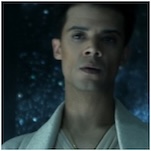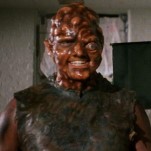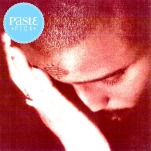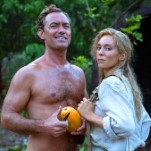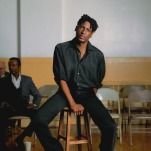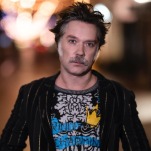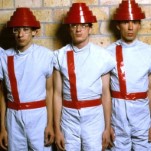The MVP: Jacob Anderson Is Transforming Genre Television, One Role At A Time
(Photo: Netflix)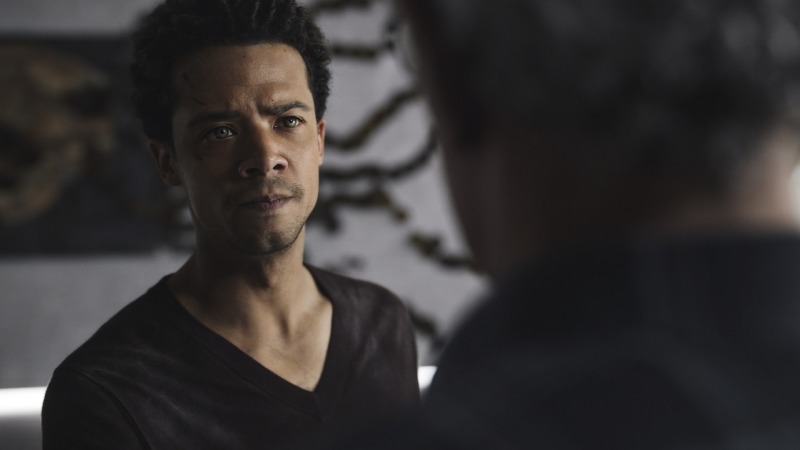
Editor’s Note: Welcome to The MVP, a column where we celebrate the best performances TV has to offer. Whether it be through heart-wrenching outbursts, powerful looks, or perfectly-timed comedy, TV’s most memorable moments are made by the medium’s greatest players—top-billed or otherwise. Join us as we dive deep on our favorite TV performances, past and present:

In the fifth episode of Game of Thrones’ series-defining third season, audiences were introduced to a character that marked a pivotal shift within the series’ dynamics. Grey Worm, played by the then-relative newcomer Jacob Anderson, comes to us as the leader of the Unsullied, a group of soldiers that Daenerys Targaryen (Emilia Clarke) has just freed from a life of slavery. As he lifts his helmet and we’re brought face to face with a young man, it feels like we’re watching a star be born. Anderson’s tight jaw gives way to an earnest declaration when he is offered to change his name from the one he inherited during his enslavement. “’Grey Worm’ gives this one pride. “It is a lucky name,” he says. “Grey Worm is the name this one had the day Daenerys Stormborn set him free.” It’s here that Anderson first made his mark on the fantasy genre, building a reputation for playing deeply nuanced characters that has since continued on-screen and changed the foundations of fantasy television.
With his debut on this HBO juggernaut, the actor became one of two central Black characters in a series with a positively massive cast. While it initially seemed as though Grey Worm would remain a background figure, as each season went on, his part in Daenerys’ fight for the Iron Throne became more expansive, marking what often felt like a historic shift in the fantasy genre. The character evolves from a simple, loyal soldier to a man grappling with his past enslavement amid a growing determination that such wrongdoings will never be enacted on others if he can help prevent it. With Anderson at the helm, Grey Worm transformed into one of the series’ most empathetic characters, whose storyline becomes a tale of belonging and love, finding the former with Daenerys Targaryen and her advisors, and the latter with Missandei (Nathalie Emmanuel).
In a series where most of the characters met their end before Season 8’s final episode—and during a final season that butchered many of their arcs—Grey Worm stands out as someone who remained true to his roots throughout the show. Anderson’s pure magnetism on screen defied the tragic (and frankly ridiculous) situations writers David Benioff and D.B. Weiss put his character through, until Missandei is murdered in one of the series’ most offensive mistakes. When Daenerys snaps and begins to torch King’s Landing in the series’ penultimate episode, we watch Grey Worm twirl his spear, unleashing fury upon the city’s army. His face is determined before it cracks open in pain, giving way to a shaking cry only silenced by Ramin Djawadi’s ominous score. Despite the comparative ridiculousness of this scene, Anderson commands the screen with such sincerity that, for a moment, it’s impossible to question this whiplash of a writing decision.
While Game of Thrones may have ended with a whimper, Anderson has since gone on to star in one of the best fantasy adaptations in recent memory. With his fantastic turn as Louis de Pointe du Lac in AMC’s Interview with the Vampire, the actor continues to deliver one of this decade’s most astonishing performances. In its first episode, Anderson delivers a monologue within a church after a night of blood-drunk sex with the irresistible vampire Lestat de Lioncourt (Sam Reid), yelping from the pews in desperation for his soul to be cleansed. “I laid down with a man,” the actor gasps through tears. “I laid down with the Devil. And he has roots in me. All his spindly roots in me. And I can’t think nothin’ anymore but his voice and his words.” It’s with this confession that Anderson proves the screen time he was given on Game of Thrones was not enough—he should have been one of the show’s leading men from the very beginning.
-

-

-

-

-

-

-

-

-

-

-

-

-

-

-

-

-

-

-

-

-

-

-

-

-

-

-

-

-

-

-

-

-

-

-

-

-

-

-

-

